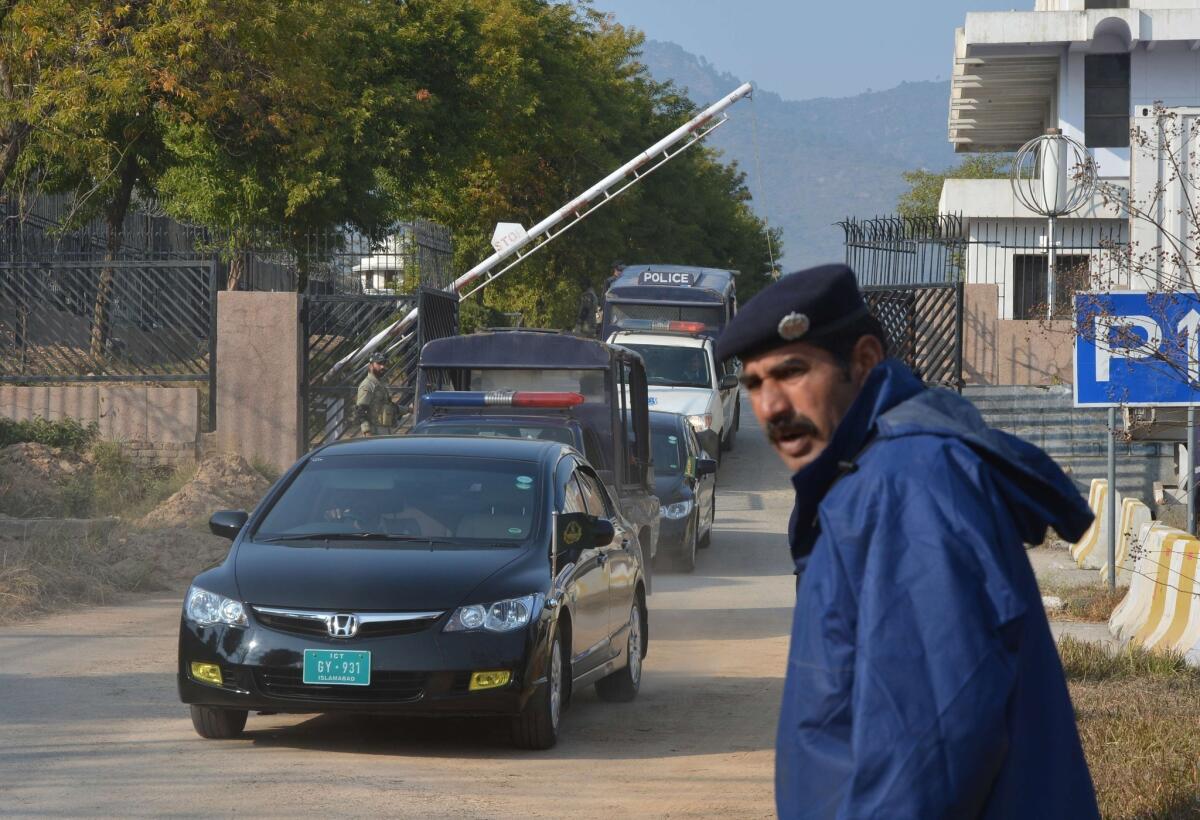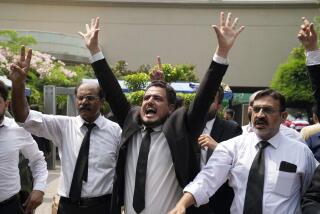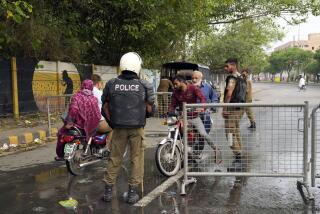Pakistan’s former leader Musharraf fails to attend court session

ISLAMABAD, Pakistan – Former military ruler Pervez Musharraf failed to appear in a Pakistani court Wednesday on treason charges after explosives were found along the route from his home to the hearing.
It was the second time in recent days that Musharraf cited security threats in failing to appear for the closely watched trial against him.
Police in Islamabad said about two pounds of explosives were found near Musharraf’s farmhouse Wednesday morning. A hearing scheduled for Dec. 24 was delayed after security forces recovered explosives and handguns near the residence.
The head of a three-judge panel hearing the case ordered Musharraf to appear in court Thursday and threatened to issue a warrant for his arrest. But Musharraf’s bombastic defense attorney, Ahmed Raza Kasuri, said the court would face responsibility “if any untoward incident happened” to the former president and army chief.
Musharraf, who took power in a 1999 coup, faces treason charges for suspending Pakistan’s constitution and imposing a state of emergency in November 2007. He returned to Pakistan in March hoping to run in elections but instead has faced a host of legal challenges, the most serious being the treason trial.
The case has captivated a country where military leaders rarely face prosecution and the army’s authority is almost absolute. If convicted, the 70-year-old former strongman could face the death penalty or life imprisonment.
Musharraf denies the charges, saying the trial is politically motivated.
During Wednesday’s hearing, Musharraf’s lawyer blasted the court as “more like Shakespearean theater” and accused the chief prosecutor in the case of being a crony of Prime Minister Nawaz Sharif.
The head of the three-judge panel, Justice Faisal Arab, cautioned Kasuri not to threaten the court and said the proceedings would move forward despite the security threats. A senior police official testified that 1,000 police had been assigned to protect Musharraf’s convoy.
“Courts continue to operate during wars,” Arab said.
Sahi is a special correspondent. Times staff writer Shashank Bengali in New York contributed to this report.
More to Read
Sign up for Essential California
The most important California stories and recommendations in your inbox every morning.
You may occasionally receive promotional content from the Los Angeles Times.










